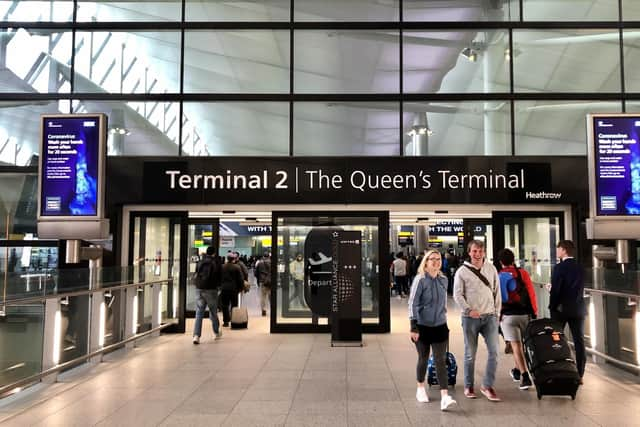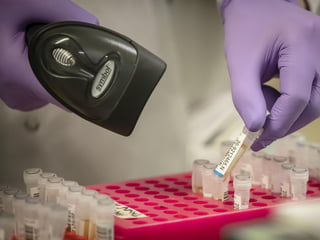Coronavirus in Spain: Latest travel advice for Spain as FCO warns against going to Madrid and La Rioja
and live on Freeview channel 276
Spain has seen more than 3,000 cases of covid-19 since the pandemic began.
With the capital of Madrid being among the worst hit areas of the country.
Advertisement
Hide AdAdvertisement
Hide AdThis has led to the government updating its travel advice for British residents heading to Spain.


Here’s what it says:
What is the latest Spain travel advice?
The Foreign Office has advised against all but essential travel to the Spanish regions of Madrid, La Rioja and the municipalities of La Bastida, Vitoria and Miranda de Ebro.
A spokesman said airlines were continuing to run flights as normal to and from these areas, and the travel advice had been updated because they had been designated by the Spanish authorities as ‘areas of community transmission’.
The Foreign Office is not currently advising against travel to other areas of Spain, or suggesting that British nationals in the country leave, as transport routes out remain open.
Coronavirus: the facts
What is coronavirus?
Advertisement
Hide AdAdvertisement
Hide AdCOVID-19 is a respiratory illness that can affect lungs and airways. It is caused by a virus called coronavirus.
What caused coronavirus?
The outbreak started in Wuhan in China in December 2019 and it is thought that the virus, like others of its kind, has come from animals.
How is it spread?
As this is such a new illness, experts still aren’t sure how it is spread. But.similar viruses are spread in cough droplets. Therefore covering your nose and mouth when sneezing and coughing, and disposing of used tissues straight away is advised. Viruses like coronavirus cannot live outside the body for very long.
Advertisement
Hide AdAdvertisement
Hide AdWhat are the symptoms?
The NHS states that the symptoms are: a dry cough, high temperature and shortness of breath - but these symptoms do not necessarily mean you have the illness. Look out for flu-like symptoms, such as aches and pains, nasal congestion, runny nose and a sore throat. It’s important to remember that some people may become infected but won’t develop any symptoms or feel unwell.
What precautions can be taken?
Washing your hands with soap and water thoroughly. The NHS also advises to cover your mouth and nose with a tissue or your sleeve (not your hands) when you cough or sneeze; put used tissues in the bin immediately and try to avoid close contact with people who are unwell. Also avoiding touching eyes, nose and mouth unless your hands are clean.
Should I avoid public places?
Advertisement
Hide AdAdvertisement
Hide AdMost people who feel well can continue to go to work, school and public places and should only stay at home and self isolate if advised by a medical professional or the coronavirus service.
What should I do if I feel unwell?
Don’t go to your GP but instead call NHS 111 or look online at the coronavirus service that can tell you if you need medical help and what to do next.
When to call NHS 111
NHS 111 should be used if you feel unwell with coronavirus symptoms, have been in a country with a high risk of coronavirus in the last 14 days or if you have been in close contact with someone with the virus.
Sources: World Health Organisation and NHS
Comment Guidelines
National World encourages reader discussion on our stories. User feedback, insights and back-and-forth exchanges add a rich layer of context to reporting. Please review our Community Guidelines before commenting.
